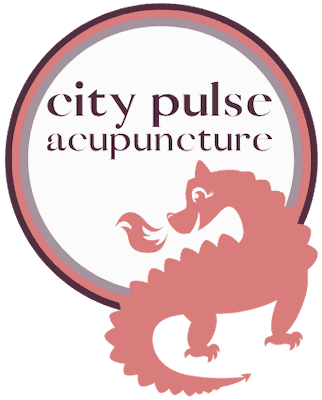A Chinese Medicine Guide for the 1st Trimester
Acupuncture
During the first 12 weeks, acupuncture can greatly reduce the risk of miscarriage and for this reason we highly recommend coming in weekly.
Spotting, bleeding and/or cramping are not uncommon in early pregnancy and can be completely normal. However, since bleeding and cramping are often signs of threatened miscarriage, please contact us immediately if you’re experiencing these symptoms. We are often able to stop threatened miscarriages and hold the pregnancy with acupuncture and moxibustion.
Rest
The first three months is stillness. Find times to rest throughout the day, even if for 5-10 minutes at a time. Morning sickness is viewed as a protective mechanism to encourage rest. Whether or not you experience nausea and/or vomiting in the first trimester, take rest seriously.
Place something beautiful (flowers, art, something sentimental) in your bedroom, in your line of vision when you wake up. When you open your eyes every morning, it’s the first thing you should see.
Nutrition
Never allow yourself to become hungry, which can flare nausea, as you probably know. High protein snacks before bed and immediately upon waking help the body to not experience hunger
Carry complex carbohydrates (ex. whole grains, oats, quinoa, brown rice) and protein (ex. raw or dry roasted nuts, eggs, fish, lean beef or chicken, beans, yogurt) with you at all times.
Nibbling on tiny amounts of food every 30 minutes can also help.
Avoid drinking liquids with meals. Wait until 20 minutes after eating to drink liquids.
Eat peacefully. Put your fork down between bites. Pay attention to your body and stop when you’re full. Eat when you’re hungry.
Nausea/Vomiting
Depending on the severity of your symptoms, it may be beneficial for you to receive acupuncture one to three times a week.
Re-read the sections on “Rest” and “Nutrition” above. Eat small amounts of foods that are high in protein, and do so often.
In the morning, try to remain in bed for 15 minutes after getting up to avoid any sudden movements that can also flare nausea.
Take walks after you eat. This encourages the digestive qi to descend rather than rebel upwards.
Fresh ginger tea is also helpful (slice 3 quarter size pieces of ginger and allow the ginger to steep in boiling water for 5-10 minutes, drink). Try to avoid ginger ale or ginger candies – the sugar content in these can worsen morning sickness.
Experiment with different teas – peppermint and peach leaf, anise or fennel seed tea, chamomile, or lavender flower
Vitamin B6: 10-25mg, 2-3 times/day.
Studies have shown that fatigue increases nausea, so sleep and lots of rest are critical.
Travel
If possible, avoid flying during the first trimester. For some people, this will be unavoidable. If you do have to travel by air, your acupuncturist can teach you how to use moxibustion (heat-therapy) to counteract the effects of flying. If you have a choice, drive or schedule trips later in your pregnancy.
Sex
Limit or abstain from sex during the first trimester, especially if you have a history of miscarriage. Intercourse releases the hormone oxytocin, which contracts the uterus. Don’t let this keep you from having sex at all. Just remember that too much of a good thing isn’t always a good thing.
Supplements
Fish oil: Omega 3 fatty acids are essential for the brain and nervous system development of your growing baby. They also support healthy pregnancy by boosting immunity and decreasing inflammation. We recommend Prenatal DHA by Nordic Naturals.
Prenatal Vitamin: We recommend purchasing Innate Response Formulas Baby & Me Prenatal Vitamin. This is a whole-foods-based vitamin with methylated forms of folate, B12 and iron and essential vitamins for pregnancy and is gentle on the stomach.
Probiotics: If you’re not already taking this supplement for digestive help, we strongly recommend you do so no later than week 20. Probiotics can help prevent Group B streptococcus (GBS), which is a type of bacterial infection that can be found in a pregnant woman’s vagina or rectum and can be passed to the baby during delivery.
Vitamin D: It is unlikely your prenatal vitamin provides enough vitamin D. A recent study found women taking 4,000 IU of vitamin D daily had the greatest benefits in preventing preterm labor/births, preeclampsia and infections. Vitamin D supports healthy bone development in your growing baby.
Stress
Identify things in your life that are stressful and eliminate them. Easier said than done, but mind-body practices can help you relax and maintain energetic boundaries that will serve you and the baby well throughout your pregnancy:
- Mindfulness meditation: this can be a very effective tool for reducing stress and promoting relaxation
- Prenatal yoga classes
- Avoid talking with people about their own pregnancy, labor and delivery experiences. Their experience, whether ideal or less-so, will not be your experience. Nevertheless, talking about it can create unrealistic fears or expectations. Learn how to gracefully exit the conversation when it comes up by saying something like, “I appreciate that you trust me enough to share your personal experience. I’m working on staying present and accepting my own experience with pregnancy by limiting the amount of stories I hear.”
Exercise
Not too much, not too little. Pay attention to your body and you’ll find a happy medium. If you have an exercise regimen, continue what you’re doing at a moderate level. Now is not the time to start training for a marathon or enroll in boot camp at your local CrossFit gym.
If you don’t have an exercise regimen, start to incorporate 30 minutes of low-impact exercise into your life a few days a week. Consider walking, cycling, swimming, yoga, tai chi, or qi gong.













